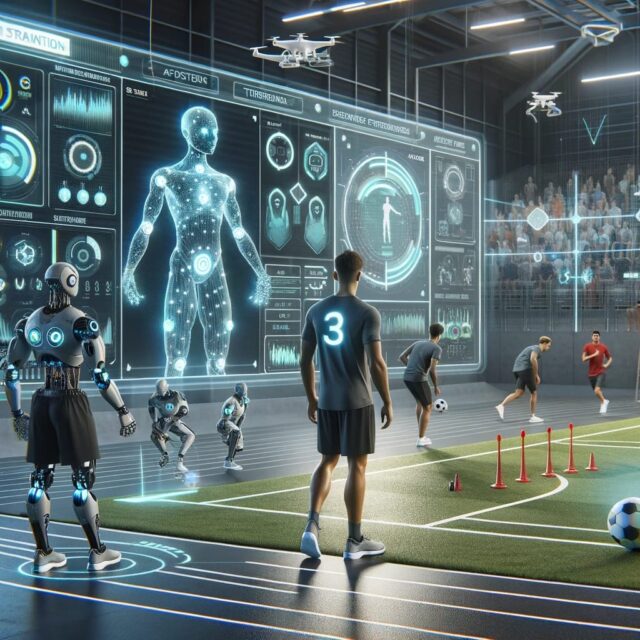Artificial Intelligence (AI) has become a transformative force across various industries, and sports is no exception. From enhancing athlete performance to streamlining sports management, AI is reshaping the way teams, coaches, and organizations operate.
This paper explores the profound impact AI is having on sports performance and management.
Enhancing Athlete Performance
AI-driven technologies are revolutionizing athlete training and performance optimization. Some key applications include:
1. Performance Analysis: AI-powered analytics tools process vast amounts of data from wearable sensors, cameras, and game footage to provide insights into an athlete’s strengths and areas for improvement. These insights help coaches make data-driven decisions to enhance training regimens.
2. Injury Prevention and Rehabilitation: AI-driven biomechanical analysis helps identify movement patterns that may lead to injuries. Machine learning algorithms assess data from previous injuries and predict potential risks, allowing preventive measures to be implemented. AI also assists in rehabilitation by monitoring progress and recommending adjustments to recovery programs.
3. Personalized Training Programs: AI customizes training plans based on an athlete’s performance metrics, fitness levels, and goals. These programs adapt in real-time, ensuring that training is optimized for maximum efficiency and effectiveness.
AI in Sports Management
Beyond athlete performance, AI is transforming sports management in various ways:
1. Game Strategy and Decision-Making: AI analyzes historical and real-time data to suggest optimal game strategies. By studying opponents’ tactics, AI helps teams make strategic decisions that increase their chances of success.
2. Fan Engagement and Experience: AI-powered chatbots and virtual assistants enhance fan interaction by providing real-time updates, personalized content, and interactive experiences. AI also assists in ticket pricing and sales by analyzing demand patterns.
3. Scouting and Recruitment: AI streamlines talent identification by analyzing vast amounts of player performance data. Machine learning algorithms identify promising athletes who may have been overlooked through traditional scouting methods.
4. Referee Assistance and Fair Play: AI-powered technologies such as VAR (Video Assistant Referee) in football help improve decision-making accuracy, ensuring fair play. AI-driven systems analyze game footage to detect fouls, offsides, and other infractions in real time.
Future Prospects
The future of AI in sports is promising, with advancements in deep learning, computer vision, and predictive analytics set to further refine how teams train, compete, and manage operations.
AI’s integration into sports will continue to evolve, offering new insights and efficiencies that were previously unimaginable.
Conclusion
Artificial Intelligence is revolutionizing both sports performance and management by providing data-driven insights, enhancing training methods, optimizing game strategies, and improving fan engagement.
As AI technology continues to evolve, its impact on the sports industry will only grow, making it an indispensable tool for athletes, coaches, and organizations alike.









